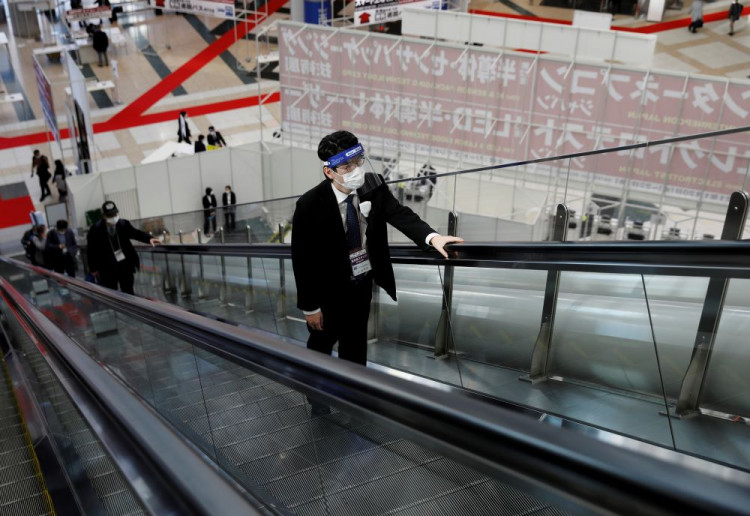Japan upgraded its gross domestic product growth projection for the next fiscal year beginning April to 3.9% from an estimate of 3.6% in October - reflecting the success of the government's measures to combat COVID-19 gradually waning, the country's central bank said Thursday.
The Bank of Japan left its short-term interest rate unchanged at minus 0.1% and maintained its target for the 10-year government bond yield at around zero.
In its quarterly outlook report the bank's economic forecast for the current fiscal year was little changed at negative 5.5% compared with negative 5.6% in October. Its projected rates of rise in the consumer price index were more or less unchanged. The central bank said it "won't hesitate to take additional easing measures if necessary."
In 2020, the bank eased monetary policy twice - mostly by expanding asset-buying and creating a new facility to deliver funds from financial institutions to companies affected by the coronavirus.
The bank said it had delivered sufficient stimulus for now to cushion the blow from COVID-19.
But it warned of escalating risks to the economic outlook as new state-of-emergency measures introduced in January hurt consumption and threatened to derail a fragile recovery.
"Our projections could change depending on developments regarding the pandemic and how they affect domestic and overseas economies. Uncertainty is therefore extremely high," the BOJ said in the quarterly report.
The bank upgraded its assessment on capital expenditure and said it was bottoming out and projected exports to increase broadly thanks to robust overseas demand.
But it offered a bleaker view on consumption, warning that services spending will remain under "strong downward pressure" and could add deflationary impulse to the economy.
"Japan's economy is picking up as a trend," the bank said - offering a slightly more nuanced view than last month when it said growth was "picking up," a Reuters report said.
Many analysts had expected the bank to hold fire ahead of the bank's review of its policy tools scheduled in March, which aims to make them more sustainable as Japan braces for a prolonged battle with COVID-19.
Sources said the bank would look to scale back its purchases of exchange-traded funds and loosen its grip on yield curve control to breathe life back into markets that have been affected by recent government intervention.
"There is a high possibility the BOJ will slow its exchange-traded funds buying," said Shinichiro Kobayashi, senior economist at Mitsubishi UFJ Research & Consulting.
"But the bank will do so in a way that doesn't give markets the impression it is dialing back stimulus," he said.






